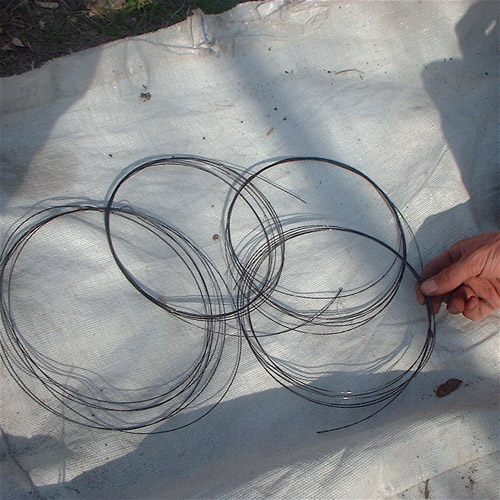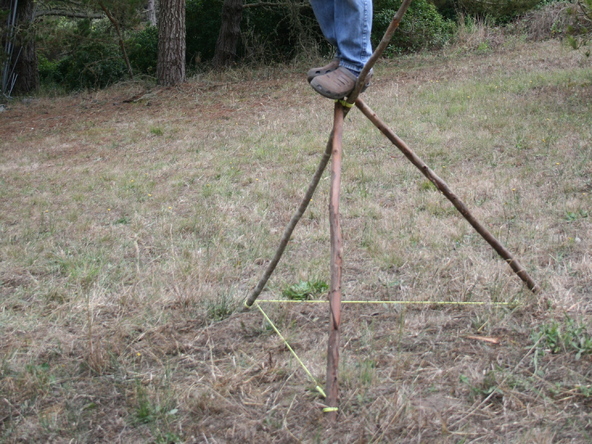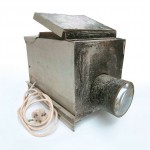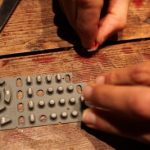“Digital technologies are changing both how library materials are accessed and increasingly how library materials are preserved. After the Internet Archive digitizes a book from a library in order to provide free public access to people world-wide, these books go back on the shelves of the library. We noticed an increasing number of books from these libraries moving to “off site repositories” to make space in central buildings for more meeting spaces and work spaces. These repositories have filled quickly and sometimes prompt the de-accessioning of books. A library that would prefer to not be named was found to be thinning their collections and throwing out books based on what had been digitized by Google. While we understand the need to manage physical holdings, we believe this should be done thoughtfully and well.” Read more: Why preserve books? The Physical Archive of the Internet Archive.
Why Preserve Books?
Castration Might Bring Us Better Politicians
“The major role of the eunuch in ancient societies was a political one. Eunuchs were the perfect guardians of harems and provided safe companions and secretaries for royal ladies. They could also be entrusted with the very highest offices of state with no fear that they would want to muscle in and start their own dynasties. Less susceptible than other men to corruption and persuasion by sexual means, they were the ideal politicians and civil servants. Their reputations could not be sullied by the accusations of rape, paternity suits and other scandals that so often blight the careers of public figures.”
“The first civilization deliberately to select eunuchs as officers of state was the Assyrian Empire, which dominated the Near East during the early first millenium BC. The practice was continued by its successors, including the Persian Empire, founded by Cyrus the Great (559-529 BC) who, according to the Greek writer Xenophon, ‘selected eunuchs for every post of personal service to him, from the doorkeepers up’. Eunuchs were becoming powerful in China during the same period. They were especially influential under the Han Dynasty (202 BC – 220 AD), when some held tremendous power simply because of their looks, and it was normal for emperors to have as many male favorites as the recommended magical number of wives. But most were of the professional variety, trained for a career in government.”
“The Roman civil service also employed eunuchs, despite the bans on castration imposed by various emperors. And, although the custom was condemned by the Church, the zenith of ‘eunuch power’ in the Roman world actually came after it was Christianized, under the Eastern Roman (Byzantyne) Empire, which ruled from Constantinople (Istanbul) between AD 395 and 1453. Thousands of young men entered public service by being castrated, providing the empire with some of its most distinguished state secretaries, generals and even Church leaders.”
Quoted from: “Ancient Inventions“, Peter James and Nick Thorpe, 1994. Image: the Roman castration clamp, an invention that enabled much safer castration than earlier methods by avoiding damage to the penis.
Harvesting Steel Wire
“There is a huge need for construction materials, at the same time the planet everywhere is littered by millions of used car tires. A way has to be found for re-using the materials that car tires are made of: rubber and steel. Large scale processes for this are well known. At the smallest scale of use better methods of recuperation have to be developed.”
“Each car tire contains 70 meters of steel wire with a 1 mm cross section. When the properties of the composing parts of a used rubber tire are well understood, then the practice of recuperation can be adapted to it.” Illustrated manual at Demotech.
Pack Goats
“Goats can be excellent pack animals. A good pack goat will carry at least twenty-five percent of his body weight (a two-hundred-pound wether will pack about fifty pounds), will follow you like a dog, will feed himself along the trail and around camp, and will be a pleasure to have around. Goats have been used as a beast of burden in Europe and Asia for thousands of years.”
Read more: 1 (quote) / 2 / 3 / 4 / 5.
Picture found at American Goat.
Related: Pack camels / Pack horses.
Jet Stream Wind Power as a Renewable Energy Resource
“Jet streams are regions of sustained high wind speeds in the upper atmosphere and are seen by some as a substantial renewable energy resource. However, jet stream motion is associated with very small generation rates of kinetic energy to maintain the high wind velocities, and it is this generation rate that will ultimately limit the potential use of jet streams as a renewable energy resource. We have calculated that the maximum sustainable extraction from jet streams of the global atmosphere is about 7.5 TW. This estimate is about 200-times less than previous estimates and is due to the fact that the common expression for instantaneous wind power merely characterizes the transport of kinetic energy by the flow, but not the generation rate of kinetic energy.”
Climate change
“We also find that when maximum wind power is extracted from the jet streams, it results in significant climatic impacts due to a substantial increase of heat transport across the jet streams in the upper atmosphere. This results in upper atmospheric temperature differences of >20 °C, greater atmospheric stability, substantial reduction in synoptic activity, and substantial differences in surface climate. We conclude that jet stream wind power does not have the potential to become a significant source of renewable energy.”
Jet stream wind power as a renewable energy resource: little power, big impacts. Earth System Dynamics, November 2011.
The Lost Art of Lashing
“Stable and strong – you can almost make anything with lashing.”
Illustrated manual at makeprojects.
Previously:







